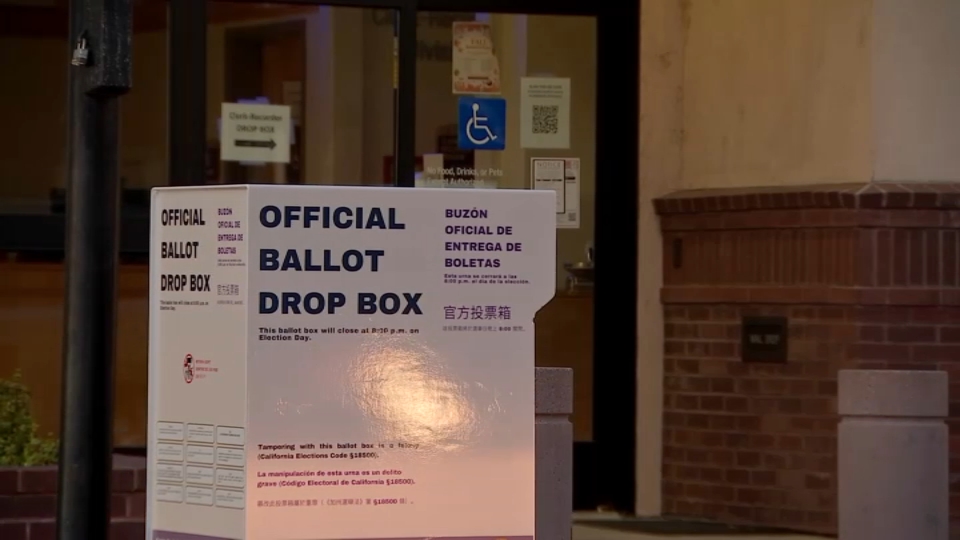After five years of searching, Avinash Jha and Ami Shah say they finally found their dream home in Fremont, Calif. Already locked in a rental lease, they couldn’t move in with their two children right away, so they decided to rent it out for one year to a family they met online.
“They’re a family like us; they’re trying to build a life here. We thought, ‘Oh it’s great. They’ll take care of our home,’” said Shah.
The couple and their new tenants signed a rental agreement in August 2019, which strictly prohibited subleasing.

Little did they know, their tenants would disregard the agreement and turn their dream home into a hotel, Jha and Shah said.
In June 2020, neighbors alerted them to multiple Airbnb listings advertising individual rooms inside house.
“I read through the reviews that even during the pandemic about 200 guests had stayed there!” said Jha.
Local
During the pandemic 200 guests had stayed [in our home]!
Avinash Jha, homeowner
“I was furious. All they wanted to do was make money off our house,” said his wife.
Which raises the question: Does Airbnb check if the person creating the listing owns or manages the property?
The Investigative Unit went through Airbnb’s property listing process three times using an address of an apartment that is not authorized for subleasing. Not once did Airbnb ask for proof of ownership or authorization through the site or app.
Airbnb declined NBC Bay Area’s repeated requests for an interview and said in a statement, “These issues are rare, but we take them very seriously.”
The company tells listers by clicking “next” “you certify that you…have all the necessary rights to list your space."

The Jha’s said that lack of thorough vetting by Airbnb led to a homeowner-tenant-Airbnb nightmare that flipped their family’s life upside down.
After learning their tenants violated the rental agreement by subletting the home, the Jha’s served them a 30-day notice to vacate on September 24, 2020. After weeks of back-and-forth, the couple learned their situation was about to get much more complicated.
The Jha family said when the tenants tried to get the Airbnb guests to leave, the guests refused, saying they were now legally tenants because they’d lived there for more than 30 days. They also cited Alameda County’s moratorium on evictions, said the Jha’s.
NBC Bay Area reached out to both the original tenants and three of the Airbnb guests. The tenants didn’t want to speak with us and the Airbnb guests did not agree to an interview.

Their original tenants have since abandoned the situation, according to the Jha’s, leaving them stuck in a housing dispute with Airbnb guests who they don’t know.
Airbnb said they took down the unauthorized listings and suspended one of the Airbnb guests accounts in August.
“Legally, the [Airbnb guests] very well might be right. Legally, there’s nothing the landlords can do about this,” said Alan Horowitz, a landlord attorney who is not representing the Jha’s or associated with the case.
Legally, there’s nothing the landlords can do about this.
Alan Horowitz, attorney
Horowitz said this Fremont case is not isolated and said these kinds of situations are happening all over the Bay Area. And because of Alameda County’s eviction moratorium, Horowitz said they can’t resolve the situation in court.
“I don’t know how many calls [I get] each week where I have to tell people that I am completely helpless to do anything for you right now.”

NBC Bay Area reached out to Alameda County Supervisors Scott Haggerty and Richard Valle. They said they are both troubled by the case and Airbnb’s response.
“I think without a doubt [Airbnb] need to be held more responsible,” said Haggerty who represents District 1 and abstained from the Board of Supervisors’ July vote on whether to extend the eviction moratorium. “I think it’s criminal that Airbnb doesn’t look and see who’s on title for that property.”

Supervisor Richard Valle is a proponent for the eviction moratorium and plans to vote for it again. But he admits it can leave some small landlords stuck.
“There’s always room for improvement,” Valle said in an interview with NBC Bay Area. “So, we’re looking at the potential of extending the moratorium beyond December 31. We want to hear from the public to hear these kinds of anecdotal stories.”
There’s always room for improvement…We want to hear from the public.
Richard Valle, Alameda County Supervisor
But, the Jha’s said they have reached out to the Board of Supervisors and haven’t received meaningful help. Until the end of the year, and likely longer, they said they’re forced to absorb the losses – losses that have taken more than a financial toll.
“[I’m] just emotional that this has turned out to be such a nightmare,” said Ami Shah.
Candice Nguyen is an investigative reporter for NBC Bay Area News. To reach her about this story or others, e-mail candice.nguyen@nbcuni.com.



